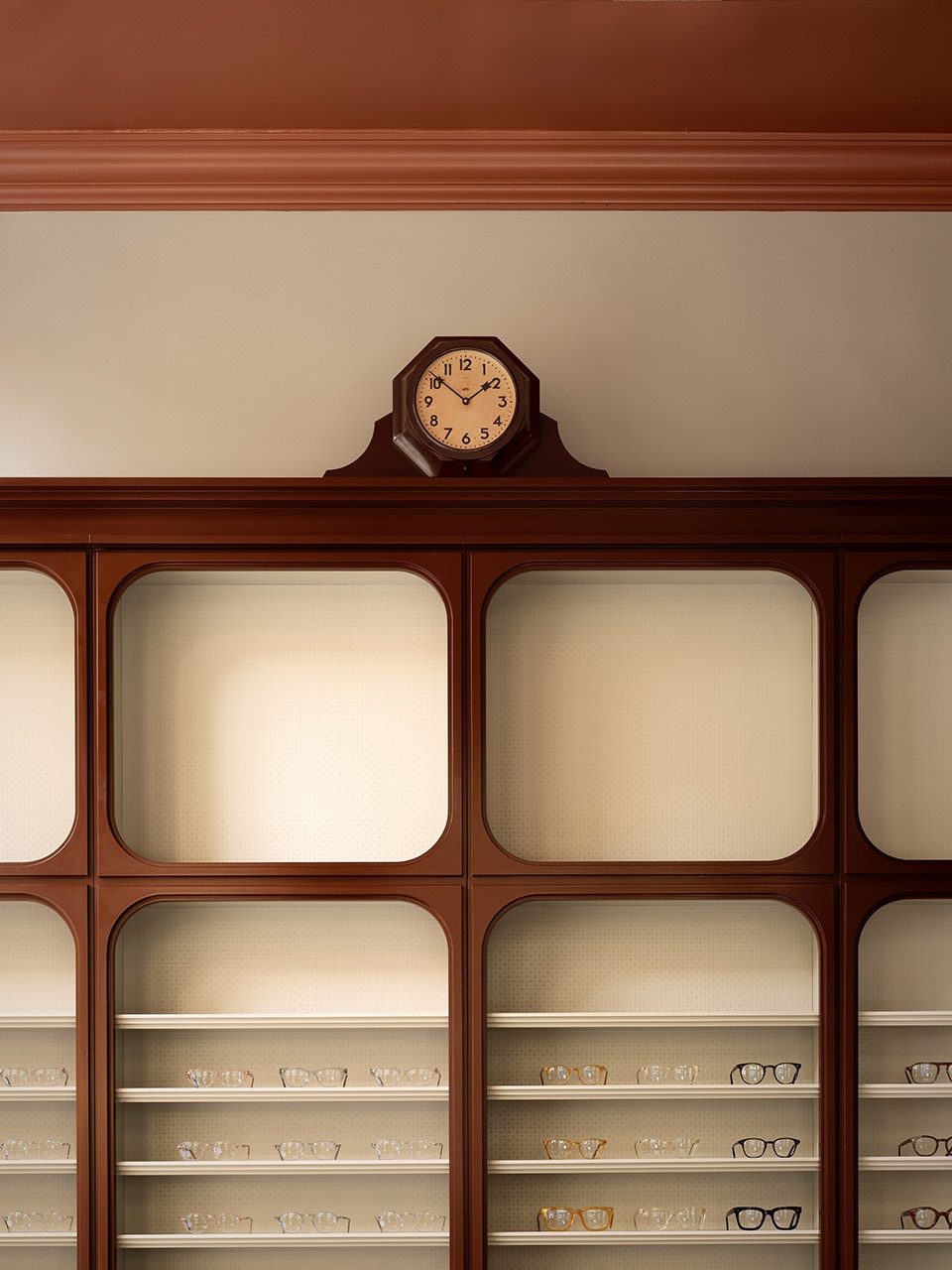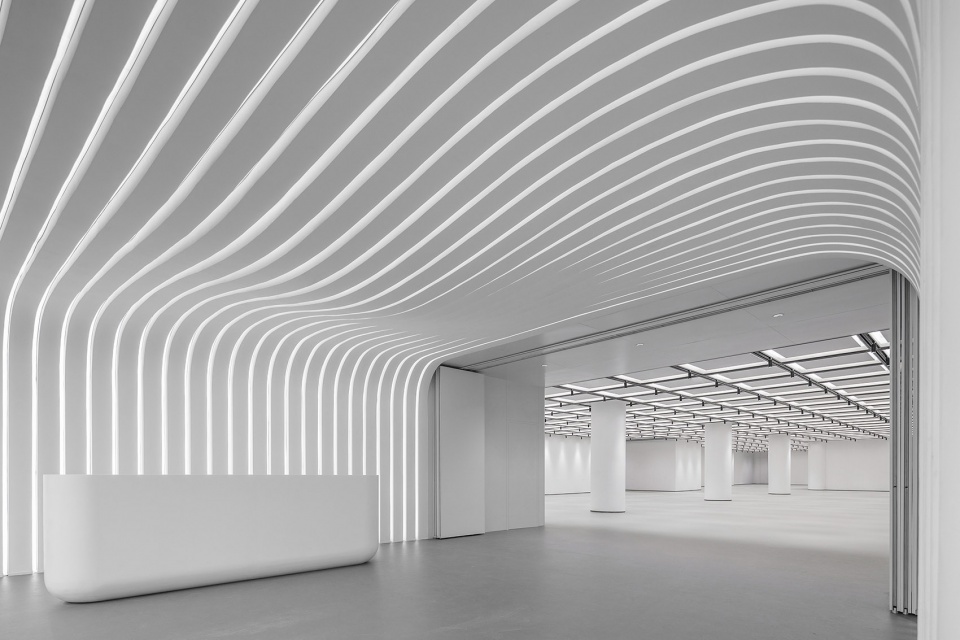

总部位于伦敦的事务所Child Studio近期为英国眼镜品牌Cubitts完成了利兹店的室内设计。项目位于利兹一座受二级保护的华丽维多利亚式购物商场内,其怀旧氛围展示出对英格兰北部文化遗产的致敬。
London-based design practice Child Studio has recently completed the store interiors for the British spectacle makers Cubitts. Located within the ornate Grade II-listed Victorian shopping arcade in Leeds, the interiors create a nostalgic atmosphere, paying homage to the design heritage of the North of England.
▼外观,exterior view ©Felix Speller & Child Studio
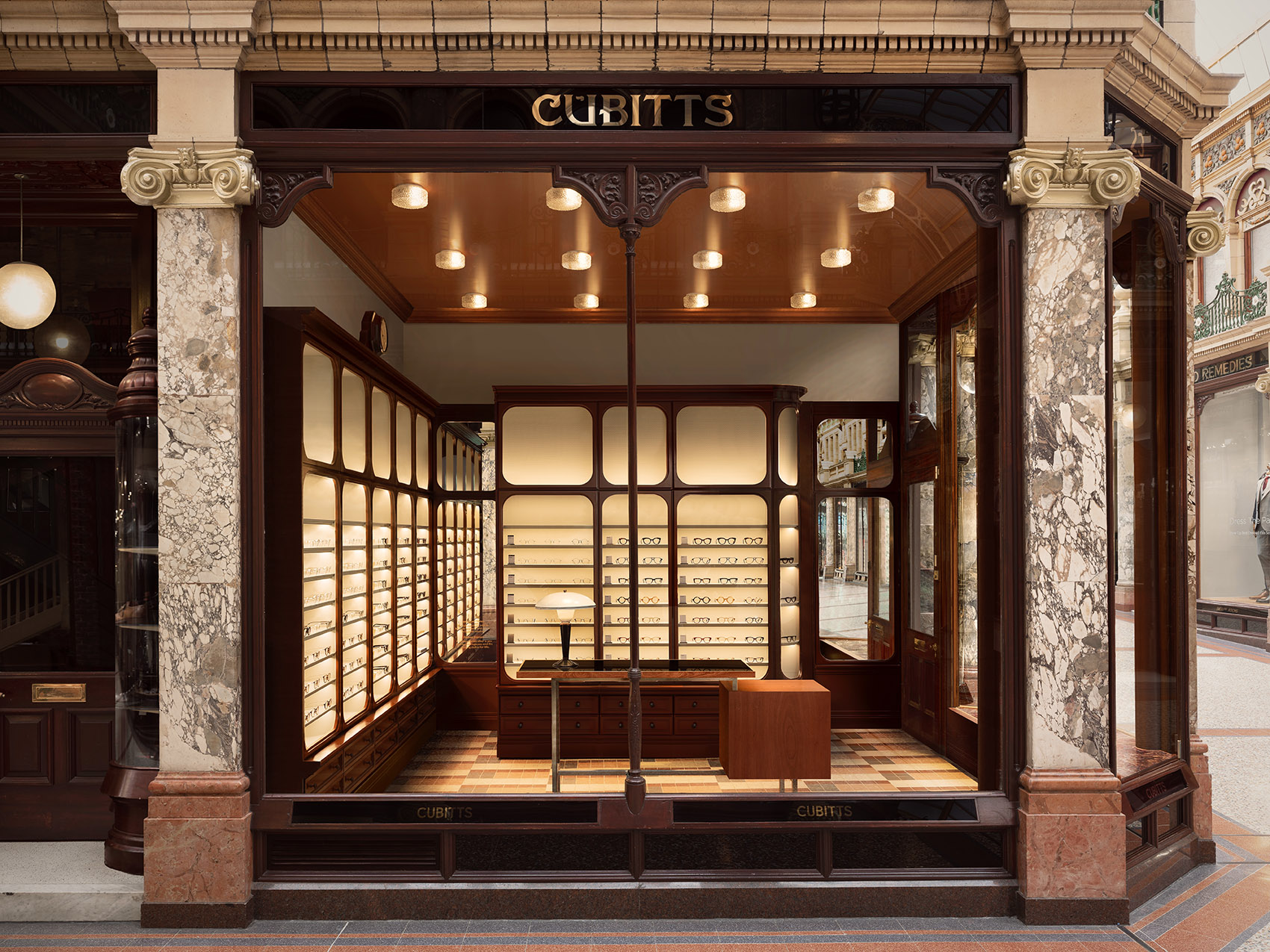
商店坐落在维多利亚区County Arcade购物中心的拐角处。这座建造于1898年的建筑由著名剧院建筑师Frank Matcham设计,从粉红色Sienna大理石柱、镀金马赛克天花板、锻铁细节和带有弧形玻璃的桃花心木店面可一瞥内部的华丽结构。Child Studio旨在致敬这处独特的建筑遗产,同时对拱廊建筑语汇进行现代的诠释。
The shop is nestled on the corner of the County Arcade in the Victoria Quarter district. Built in 1898 by the renowned theatre architect Frank Matcham, this opulent structure features pink Sienna marble columns, gilded mosaic ceilings, wrought iron detailing and mahogany shopfronts with curved glass facades. Child Studio aspired to celebrate the unique heritage of the building, whilst introducing a contemporary interpretation of the arcade’s architectural language.
▼入口,the entrance ©Felix Speller & Child Studio
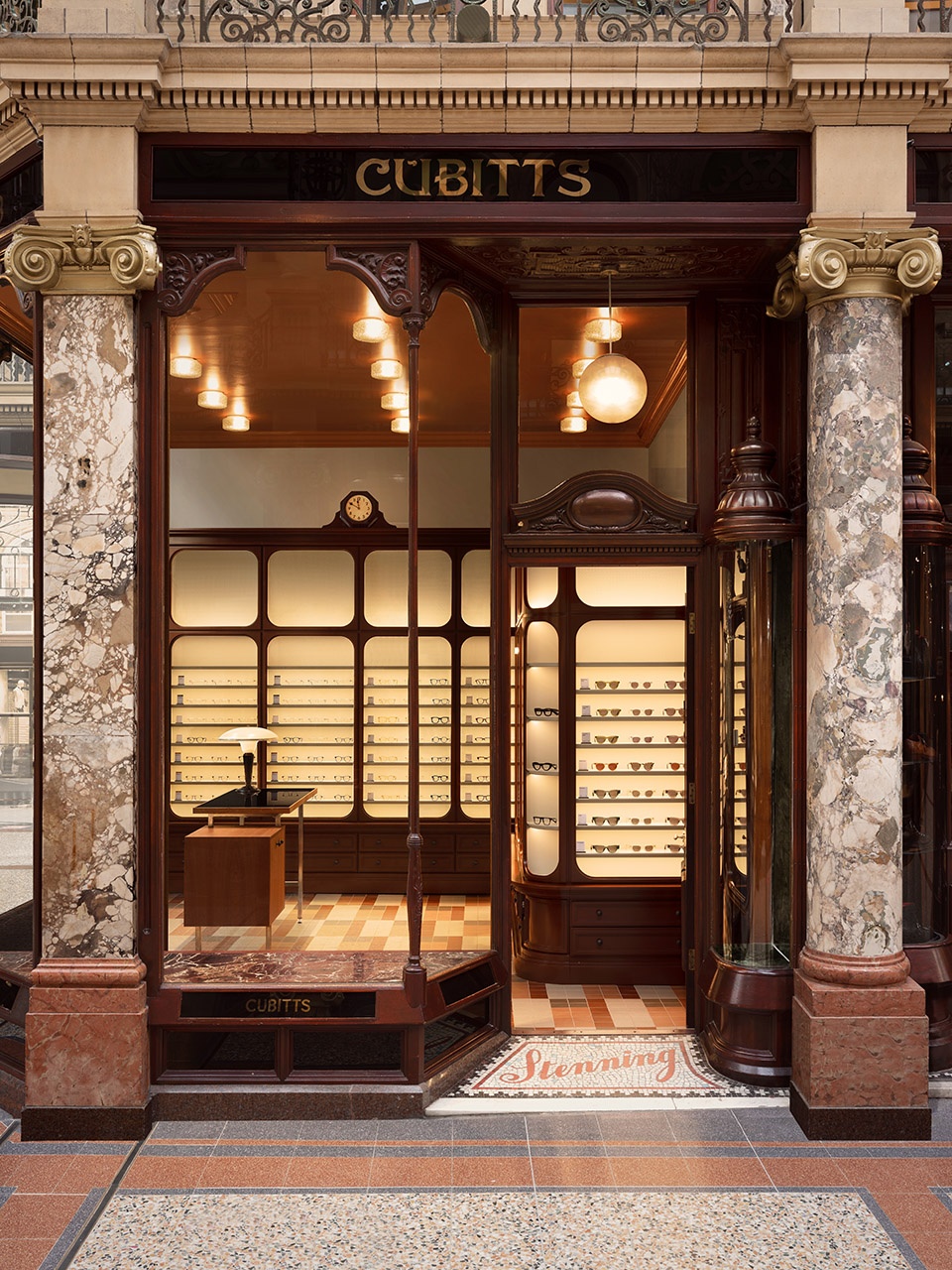
Child Studio创始人Alexy Kos和Che Huang介绍道:“历史建筑内的更新设计通常拘泥于模仿,或是沦落为一种不考虑环境的枯燥的极简主义外观。我们希望采取一种更微妙的方法,通过分层叙述展示出建筑历史中的不同章节。设计中,我们试图去想象空间如何随着时间的推移而有机地发展,并以此为依据将维多利亚时代的橱柜细节、装饰艺术风格的室内元素和现代主义风格融为一体。”
“New interiors within historic structures often fall into a pastiche or offer a sterile minimalist look that doesn’t attempt to engage with the context. We wanted to take a more subtle approach and to build a layered narrative that would acknowledge different chapters in the building’s history,” commented Child Studio founders Alexy Kos and Che Huang. “We tried to imagine how the space could have evolved organically over time, fusing the Victorian cabinetry features with the Art Deco interior elements and Modernist references.”
▼立面细部,details ©Felix Speller & Child Studio
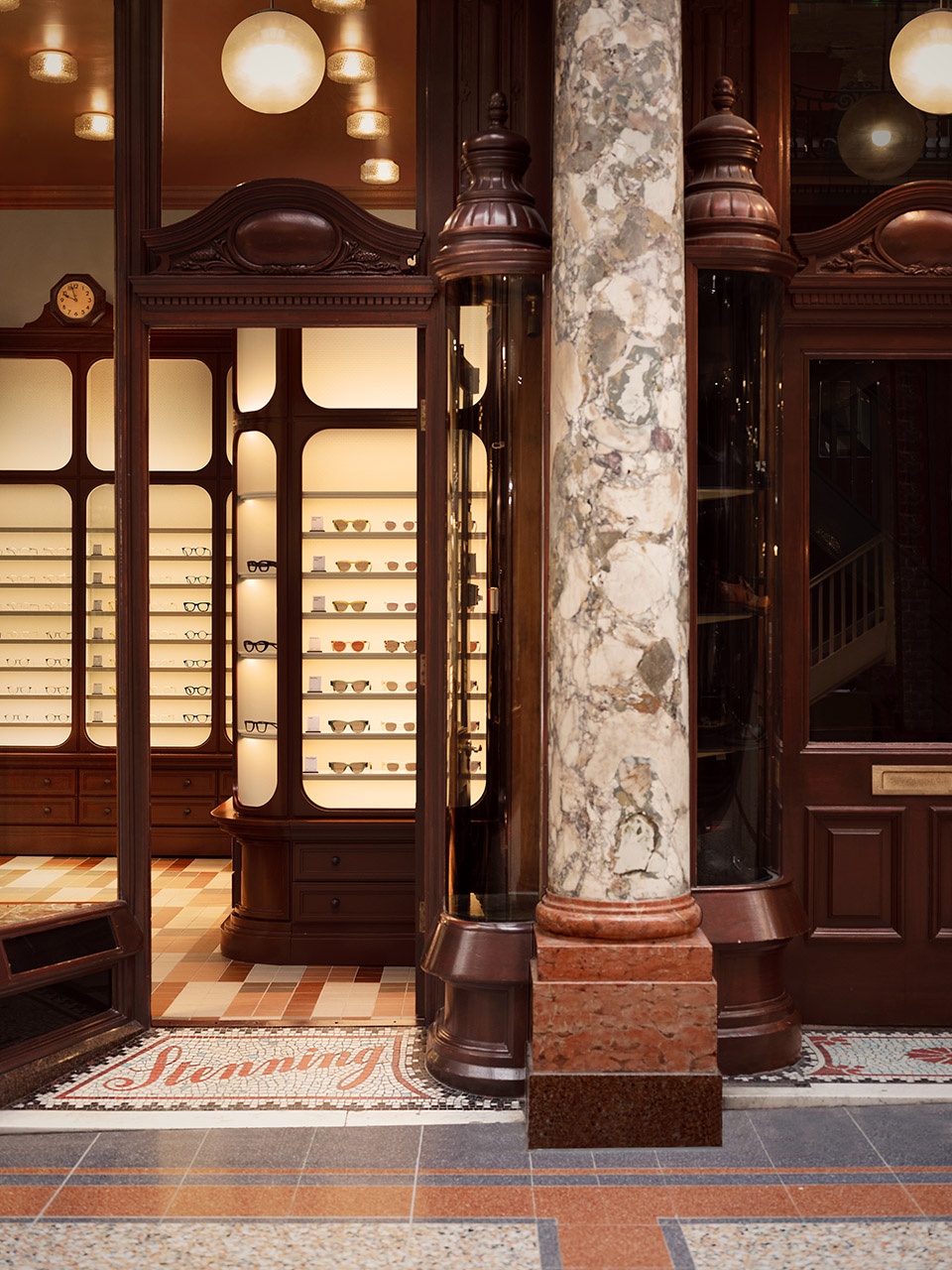
“Child Studio一直以寻找真实故事作为设计的内核,旨在创造出富有意义的永恒空间。因此,触感与工艺对我们来说非常重要,以本案为例,每一个细节都是基于仔细研究的定制设计。项目平衡了传统和现代,在历史悠久的街区开辟了一个私密、非正式的乐园。”
“Child Studio is always looking for an authentic story at the core of the project, aspiring to create something meaningful and timeless. Tactility and craftsmanship are incredibly important to us: every detail in this interior is bespoke and based on careful research. Balancing heritage and modernity, this project aims to provide an intimate and informal destination for this historic neighbourhood”, – added Alexy and Che.
▼室内空间概览,overview of the interior space ©Felix Speller & Child Studio
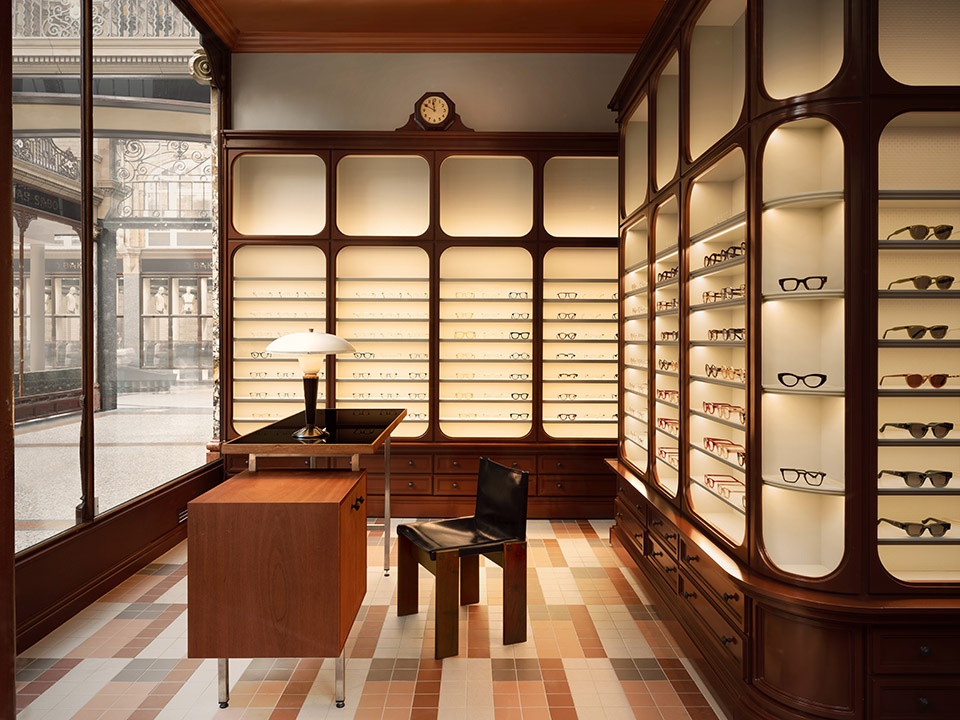
商店内,3米高的展示柜构成了引人注目的内墙,顺应着原始店面的几何形状。可可棕色的光泽漆饰面与发光展架的灰白色纹理背景形成了鲜明的对比。
The store interior is wrapped in a series of dramatic 3-meter tall display cabinets that echo the geometry of the original shopfront. The chocolate brown gloss lacquer finish contrasts with the off-white textured wallpaper that lines the illuminated display shelves.
▼展示区,display area ©Felix Speller & Child Studio
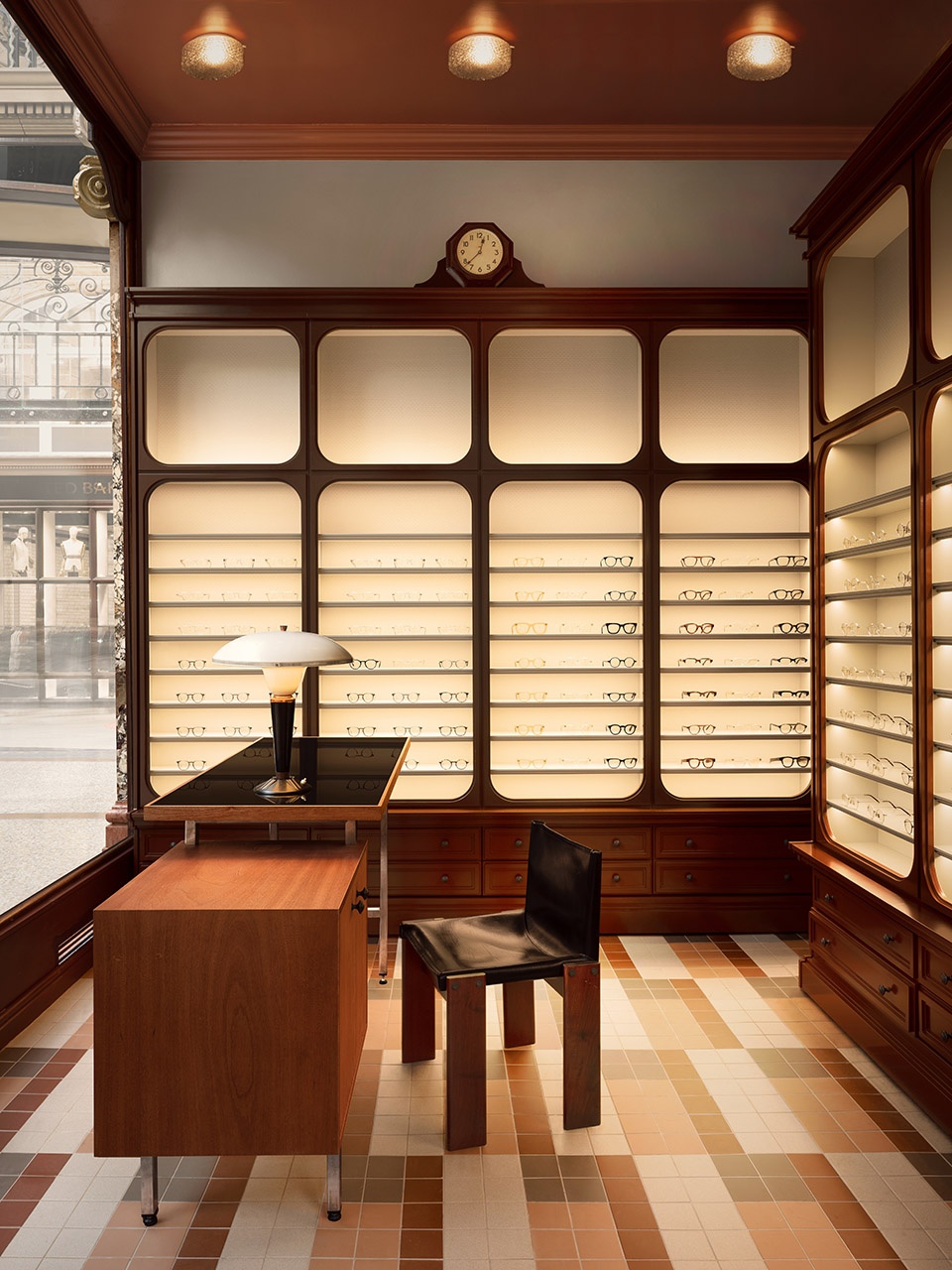
▼发光展示柜,illuminated display cabinets ©Felix Speller & Child Studio
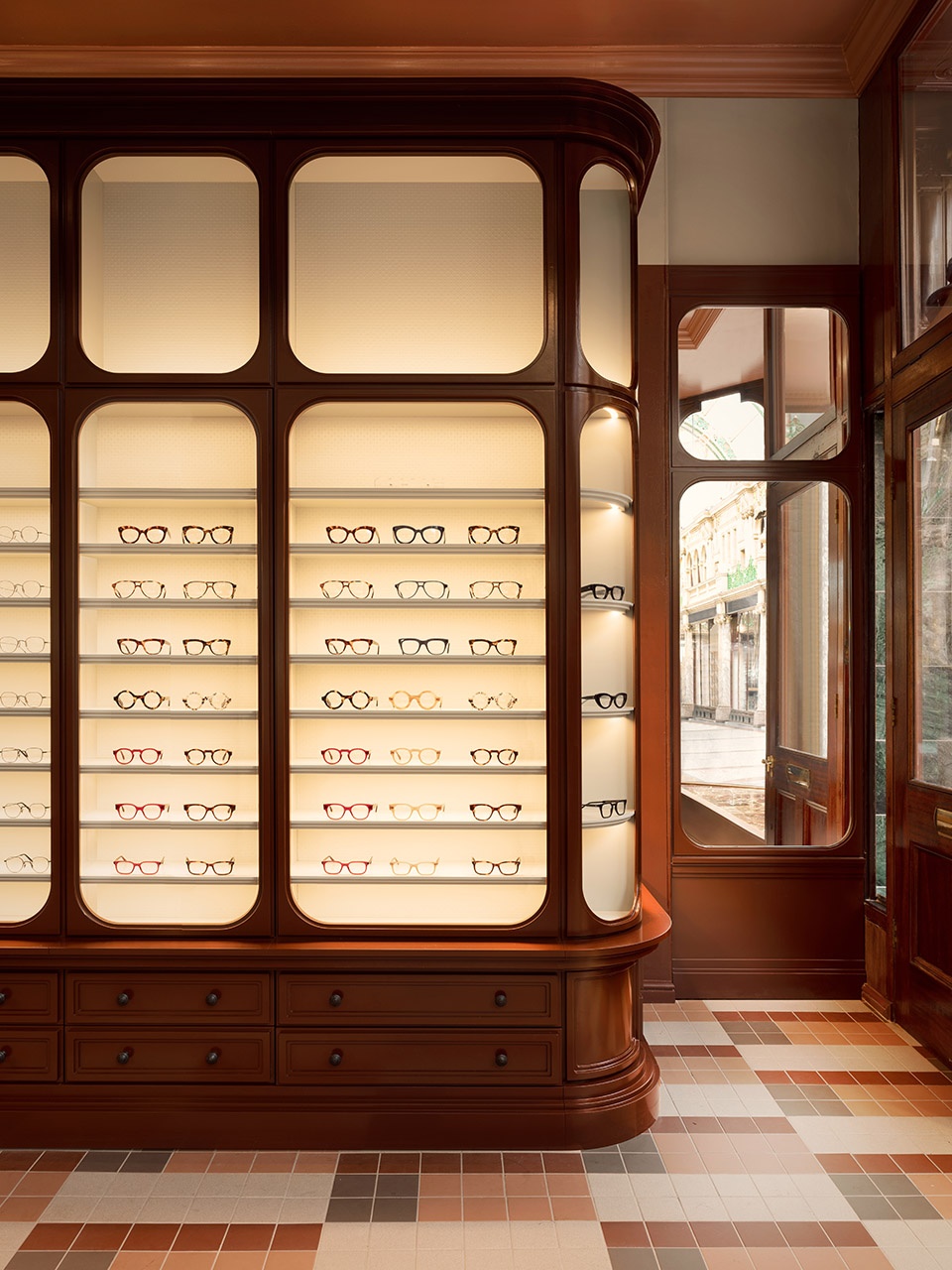

定制收银台参考了著名家具设计师Robin Day的经典作品,模仿了写字台的外观。反光的黑色玻璃桌面下有不锈钢底座和樱桃木储物柜作为支撑。
The custom-made cashdesk was designed to resemble a writing desk, referencing the classic pieces by the celebrated furniture designer Robin Day. The reflective black glass tabletop is supported by the stainless steel base and the cherry wood storage cabinet.
▼定制收银台细部,details of the custom-made cashdesk ©Felix Speller & Child Studio
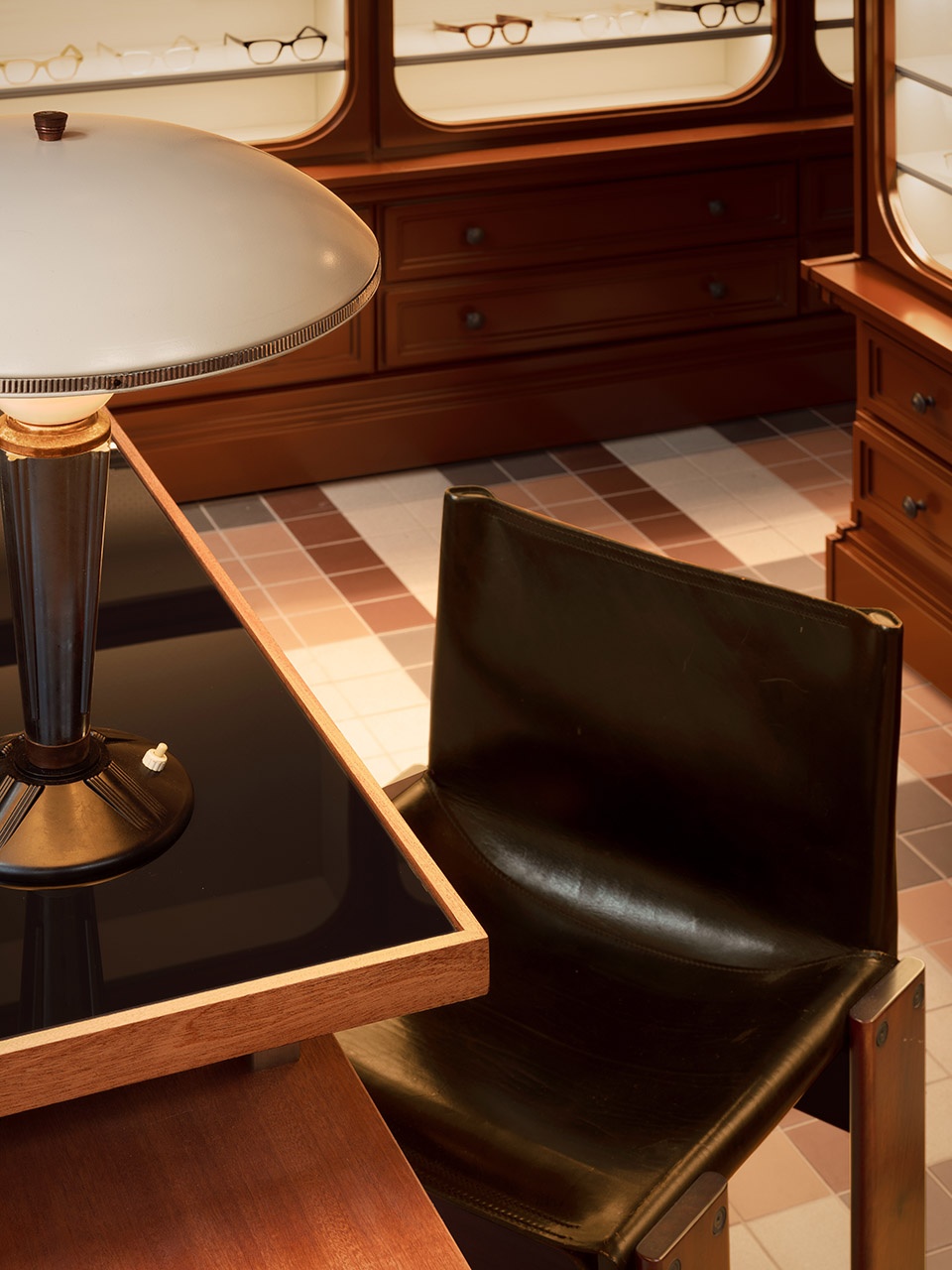
地板的几何图案也十分引人注目,其灵感来源于历史拱廊中由当地Burmantofts陶瓷品牌生产的彩陶。Child Studio将不同陶土和沙子混合成灰色调的瓷砖,致敬了拱廊建筑的材料和色彩。设计师还为空间置办了一系列古董家具,其中包括Tobia Scarpa的“Monk”皮椅、Eileen Gray 设计的“Jumo”台灯和英国Genalex公司在1930年代为学校和工厂打造的八角木钟。外立面的标识由当地工匠以传统Verre Eglomise技术手工制作,将金箔字体精心贴于黑色玻璃之上。
The space features a striking geometric floor pattern, which was inspired by the arcade’s original architectural faience detailing produced by the local Burmantofts Pottery Company. Child Studio used clay tiles in various shades of terracotta, sand and anthracite tones, in a nod to the materiality and colour palette of the arcade’s architectural features. The designers sourced a selection of antique furniture pieces for the space, including the “Monk” leather chair by Tobia Scarpa, the “Jumo” table lamp designed by Eileen Gray and the octagonal bakelite clock produced in the 1930s by the British company Genalex for schools and factories. The facade signage was hand-crafted by a local artisan using the traditional ‘Verre Eglomise’ technique with gold leaf applied to the black glass.
▼古董家具,八角木钟,antique furniture, octagonal bakelite clock ©Felix Speller & Child Studio
